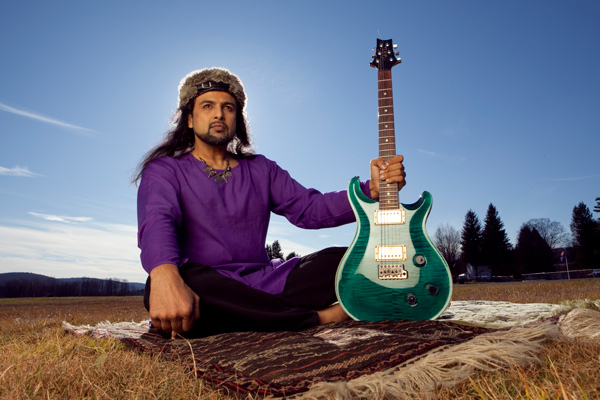For more on radio and music business news. | Click on RNMBiz

MUMBAI: Two days ago, yet another mindless blog circulated on social media platforms asking one of the leading Pakistan imports to Bollywood to return to his homeland amidst the growing tensions between the neighbouring countries. The blogger acknowledged that art and culture should not be punished, however, the also added that unfortunate silence exercised by the celebrity concerning Pakistan’s stand on terrorism calls for such actions. As appalling as the blog stood out (the idea echoed by at least two active political parties), it was incorrect too. On both lands, celebrities have stayed mum towards the prevailing anti-social elements affecting the respective nations. And there’s a reason too. Take Pakistani sufi rock band Junoon for example.
In an interview to an international media house in 1998, Junoon’s founder Salman Ahmad requested the two countries to tackle the similar demons harming their citizens – poor health reforms and poor education policies. Pakistan’s then government banned the band from live performances, and the ban extended to radio and television coverage. The issue did not end there, as Salman Ahmad and his bandmates were charged for treason and sedition. That and several other incidents have been a part of Junoon’s journey to fame. The band has had a bittersweet experience (mostly bitter) with the governments, as a result of its hard-hitting lyrical take on terrorism, corruption and other elements.
In November 2016, the journey will gear up for an exciting development as Ahmad informed that the 1998’s Best International Group (recognised by Channel V) will release a new album, titled ‘Junoon25’ with Universal Music India. Upon asked if the band could have picked a better timing for the release, considering the atmosphere, an optimistic Ahmad replied, “The timing, in fact, would not have been better. Historically speaking, art has immense potential to unite people. Junoon, Indian Ocean, Nusrat (Fateh Ali Khan) sahab have managed to do that to a certain extent.”
For someone who claims to have never actually mastered or learned the art of songwriting, Ahmad is no less than a sane poet. His words are relevant, important and dark. Ahmad takes extreme pride in his action towards making society a better place - the peace concerts, direct contribution to eradication of polio, engaging with youth – and believes in the futility of recounting the dark histories between the two countries. “If you look back at our albums,” added Ahmad, “the first album ‘Junoon’ spoke about ‘passion’, the second album ‘Talaash’ spoke about ‘a passionate quest’, followed by ‘Inquilaab’ that represented a ‘revolution inside one’s heart’, leading to the ‘liberation’ through the fourth album ‘Azadi’. Following that process, the newest album ‘Junoon25’ will be a ‘celebration’”.
Ahmad emphasises that, although Junoon25 would mark the silver jubilee of the band’s formation, the album will be a genuine and promising reason of looking ahead, and not what’s past. Elaborating on the album – mixed and mastered in New York, Lahore and Karachi – the excited frontman informed that Indian playback singer Shubha Mudgal, Pakistani singer-turned-actor Ali Zafar, English songwriting legend Peter Gabriel and popular Danish outfit Outlandish have collaborated for Junoon25. Gabriel offered Ahmad the opportunity to record his album with the former’s Real World Records, a year after the duo released a single for the Pakistan Flood Relief. “It is, obviously, a huge deal for me and everyone involved in the making of the album. Working with Gabriel always involves great satisfaction. He’s a very matured and composed songwriter, and everytime I meet him, I learn something incredible. Not just him, the same can be experienced in the case of Shubha Mudgal. I am extremely fortunate to have worked with these wonderful professionals.”
Salman Ahmad – appeared on the hit list of several aggressive terror groups - continues to feel surprised with the little development towards peace between India and Pakistan, but refuses to let the worrying conditions affect his cause. “We aren’t even each other’s enemies; the biggest enemies are poverty and hunger.” Ahmad often quotes several writers, songwriters, poets and leaders to emphasise on certain aspects, and in this case, Ahmad carefully chooses the popular Jimi Hendrix to explain his duty – When the power of love overcomes the love of power, the world will know peace.
Currently, the two nations desperately need to follow the Hendrix quote, and currently, more than ever, the two countries desperately need to hear the Junooni sound. The 14-track album will arrive in a couple of months, and let us just hope, one of the finest Pakistan’s import to India manages to dominate the minds of the two young nations with music, and not the nuclear war. Ahmad, also a doctor, concluded the telephonic conversation with “Ruling hearts and minds through guitars is far more powerful than holding a gun.”